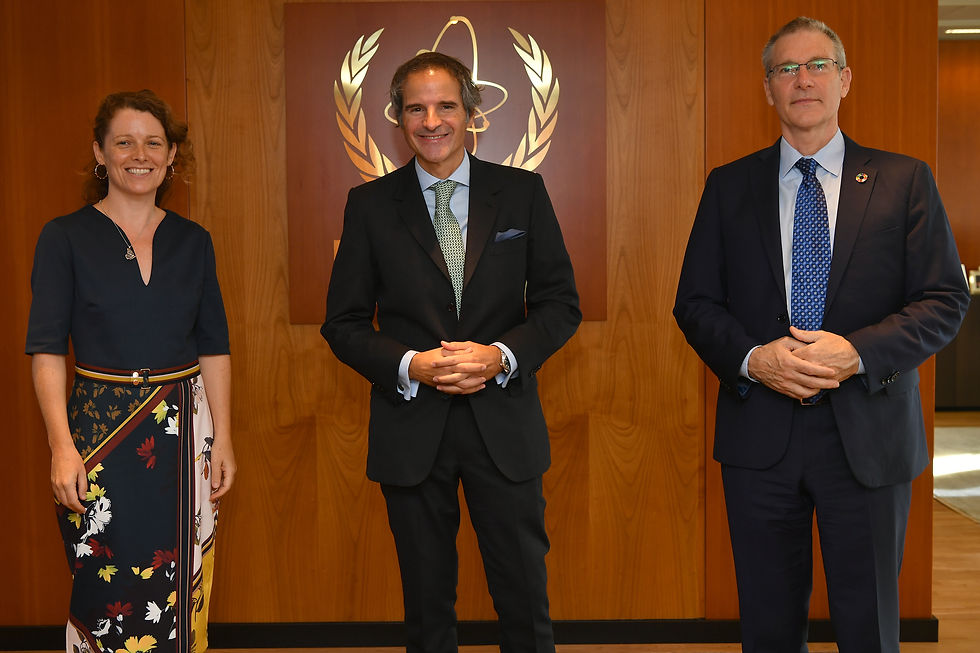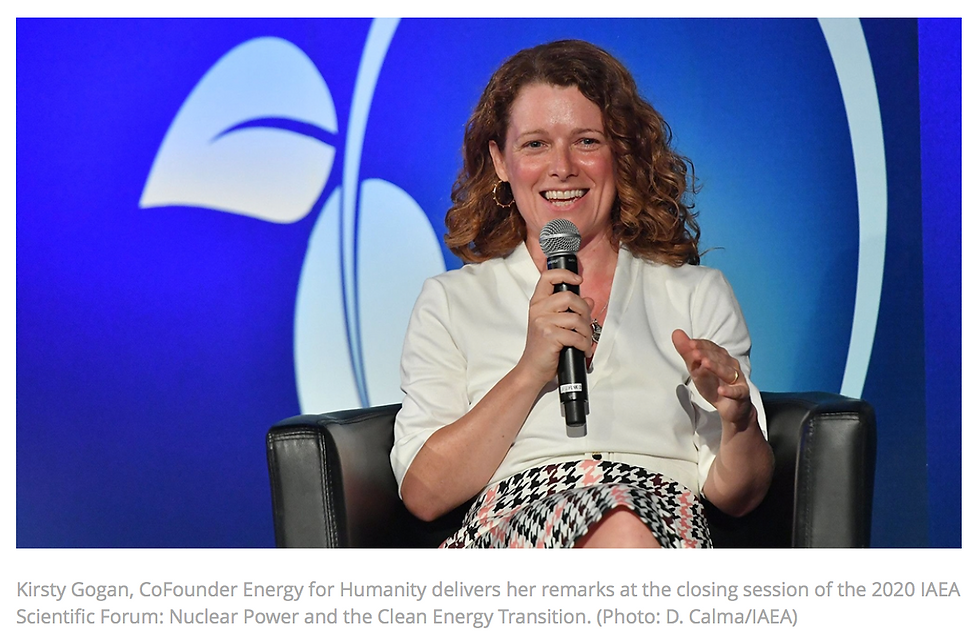IAEA 30 September 2020 Nuclear power must have a seat at the table in global discussions over energy policies to curb emissions and meet climate goals, as technical and scientific advances open the door to better economics and greater public acceptance of this low carbon source of energy.

Participants discussed innovations that are making nuclear power a more affordable and attractive energy option. These include advances in large reactors, emerging technologies such as advanced fuel and small modular reactors (SMRs), engineering breakthroughs extending the operational lifetime of existing reactors, and new developments in waste management such as the construction of the world’s first deep geological repository for spent nuclear fuel. This article sums up the discussions of the four sessions. Highlights of the opening session can be found here, and detailed programme and presentations here. ... During the closing session, Director General Rafael Mariano Grossi joined a panel with Bernard Bigot, Director-General of the ITER Organization and representatives from civil society, namely Kirsty Gogan, [Managing Director at LucidCatalyst and] CoFounder of the non-governmental organization Energy for Humanity, and Fabricia Pineiro, Member of the Board of Directors of the International Youth Nuclear Congress. “Fission and fusion are very different but could be very complementary,” said Bigot. “There is a lot to learn from each other,” he said, including in areas related to materials, qualification of systems (an equipment quality control mechanism) and components and robotics. He said the two organizations must work together, “in a joint partnership that could advance both forms of energy.” Gogan reiterated that to advance discussions on the role of nuclear power and improve public perceptions, we need to step up communication efforts, among others. “Ultimately, the scale and urgency demand that we are evidence-based and rigorous in our solution, but we must also be rigorous in our communications and public engagement.” She talked about the importance of building a wider coalition around nuclear power and emphasized the importance of communicating about shared values. As a representative from the young generation of nuclear scientists and engineers, Pineiro said that the nuclear sector is innovating in many areas, including in key industrial processes related to automation and remote operations. This attracts young people to the industry, as “our work has a direct positive impact and gives us a sense of pride and purpose”. Director General Grossi said discussions at the Scientific Forum had focused on timely and pertinent questions, the answers to which clearly demonstrated that the nuclear industry is not stagnant. Advanced reactors, including SMRs “are a reality and there is a lot of interest,” including form countries looking to introduce nuclear power for the first time, he said. Challenges remained, such as the financing of nuclear power plants and public communication, but innovations in this regard “are being pursued in different parts of the world.” “From an IAEA perspective, we have an important role to play in ensuring that the discussion has a firmer support basis,” he said, adding that the Agency can take this debate forward on the road to COP26 in Glasgow next year. “I see a recognition of the contribution of nuclear. Simply because it is a good solution, a solution that brings low carbon energy, that helps development,” he concluded. With concerted efforts from all sectors – government, industry and civil society – the expansion of nuclear power could have a meaningful impact on the clean energy transition. “But we need to face the debate and challenges and respond with determination,” he added. “This is indispensable.” > See the full article about the proceedings of the 2020 IAEA Scientific Forum
> See the Forum program and video presentations > Read our article about how to drive deeper decarbonization in the IAEA Bulletin


Rafael Mariano Grossi, IAEA Director General met with Kirsty Gogan Co-Founder Energy for Humanity, Managing Director, Lucid Catalyst and Eric Ingersoll, Lucid Catalyst, during the IAEA 64th General Conference held at the Agency headquarters in Vienna, Austria. 24 September 2020. Photo Credit: Dean Calma / IAEA




Comments